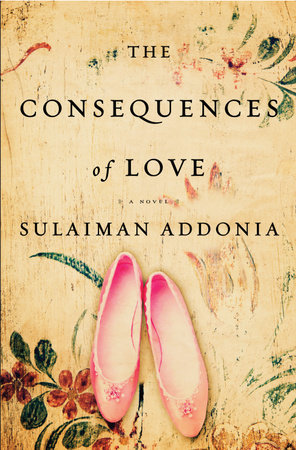When I was much younger, a seer in India foretold that I would never settle down but migrate from place to place as if there were wings on my feet. Or something to that effect. Either way, his prophecy came true and among the many places and countries I lived and worked was Dubai in the United Arab Emirates. It was not the Dubai that we all know today with the fantastical construction projects that defy the laws of nature. It was instead a city in its chrysalis with dreams and blueprints and lots of talk but nothing to show for it. But then, like now, it was a city of immigrants or “guest workers” encompassing everyone from blue-collar laborer to office worker, to company executive.
In my new novel Hope You Are Satisfied, a group of young people, immigrants from different countries, are working in Dubai as customer service agents for a small tour operating company. They are just trying to do their jobs and help their families back home when US armed forces begin arriving in droves as Saddam Hussein’s 1990 invasion of Kuwait plunges the world into a new global crisis, one that threatens their livelihoods and their futures.
Immigrants to the Mid-East come for economic reasons, especially for the competitive wages if they are from a western country. As for those from Asia and Africa, their motives often include improving the lives of their families by sending their earnings back home. For some, the act of immigrating is often one of desperation, borne from a lack of options in their native lands. As there is no path to citizenship for most guest workers in this region, many wrestle with a sense of displacement, an estrangement stemming from the separation from loved ones for years, and sometimes trauma from the treatment they receive in countries where they are but temporary citizens.
So, whether they come from the East or the West, whether they come as immigrants or expats, whether they come for economic betterment or to seek self-redemption, the books below consider the bargains they strike with their destinies when they make the journey to, not from, the Middle East.
Temporary People by Deepak Unnikrishnan
The 2022 FIFA World Cup in Qatar brought back into international headlines the unfair labor practices and human rights violations of workers from the Indian subcontinent, East Africa and the Far East who come to the Gulf for work. With these interlinked stories, vignettes and poems, Unnikrishnan employs word play, allegory, and magical realism to critique the social structures and laws that foster the dehumanizing treatment of South Asian guest workers in the United Arab Emirates where they are so ubiquitous as to become invisible. Writing of immigration as exile, as ill-fated destiny, as catastrophic result of global economics, he melds the real and fantastical with stories that speak to what it means to leave one’s homeland and take on a transient existence in a place where labor is valued above all else, even life.
It’s Not What You Think: An American Woman in Saudi Arabia by Sabeeha Rehman
Reminded to don her abaya before she leaves their expat compound in Saudi Arabia, Rehman is struck by the incongruity of waving goodbye to a neighbor sunbathing in her bikini. It is the early 2000s. Rehman has relocated from New Jersey with her husband who will be working at a prestigious hospital in the ultraconservative city of Riyadh. A devout Muslim herself, albeit one who has lived in the States for decades, Rehman’s memoir offers an insider’s look but with an outsider’s point of view, documenting experiences that disabuse her of many misconceptions. The diversity of the culture and people are front and center as she relishes the anonymity provided by her abaya and is understandably disturbed by the tribal and patriarchal forces at work in Saudi society. She writes, “In the West, where our knowledge of Muslim countries is sometimes reduced to soundbites and headlines, we’re prone to a mistaken idea of homogeneity.”
The Dog by Joseph O’Neill
The narrator, referring to himself as X, is a New York lawyer in the painful throes of a broken heart and an existential crisis. He moves to Dubai for a job with a family of Lebanese billionaires (he only gets the job because he is mistakenly taken to be a friend of the well-known businessman but not yet president, Donald Trump). He becomes a front man for the family’s shady businesses, rubber stamping papers he doesn’t understand, and babysitting their overweight and insufferable son. Dubai itself is in the midst of a makeover, but the 2008 financial crisis has brought a halt to its dizzying pace of development, resulting in both our narrator and the city existing in limbo. We are privy to X’s philosophical musings and insights on everything from labor laws to the confusing social and cultural mores of his adopted city, but X is a man who is wrestling mainly with the mystery that is himself.
An Unlasting Home by Mai Al-Nakib
Sara, a professor of Philosophy at Kuwait University, gives a lecture on Nietzsche that leads to a charge of blasphemy, a capital crime punishable by execution. Sara’s story opens the novel and is the fertile ground out of which grow the stories of the other women in her family. Al-Nakib delves into their sacrifice of self as immigrants moving between continents due to political unrest or familial obligations, yet none more so than Sara’s ayah and second mother, Maria. Born in Goa on the western coast of India into a loving family and a life of poverty, Maria’s losses and need to secure her children’s future lead her to Kuwait where she cares and nurtures children other than her own, namely Sara and her brother. Maria’s loneliness and heartbreak borne from separation speaks to the immigrant experience of maids from around Asia who take up jobs in the Middle East as caregivers to other children, often not seeing their own children for many years. The novel hones in on guilt and regret, and the burden of the constant unanswered question about whether they made the right decision by immigrating.
The Map of Salt and Stars by Jennifer Zeynab Joukhadar
The death of her father propels young Nour and her family to return to Syria from New York City, a homecoming to a place she has never been to before. She doesn’t even speak much Arabic. It is an importune time to have made the move as it is 2011 and the Syrian civil war shatters their hopes of rebuilding their lives. Forced to flee when a bomb destroys their home, they embark on a trepidatious journey that takes them around the Middle East and North Africa. Paired with Nour’s story is that of Rawiya, a twelfth-century waif of a girl who disguises herself as a boy so she can apprentice with a famous cartographer, joining him in a voyage across land and sea to chart the world. Though separated by eight centuries, Nour and Rawiya’s routes mirror one another’s as they attempt to map their destinies in their own way, encountering violence, heartache, displacement, and in Rawiya’s, case mythical creatures. They both begin to grasp what “home” means to them.
The Bamboo Stalk by Saud Alsanousi
Driven by the lack of options in their home countries, a large number of women immigrate to Gulf countries as maids, housekeepers, or nannies, where they are at the mercy of their sponsor families, with many unable to depart or move jobs without their employer’s consent, leaving them vulnerable to exploitation. The prejudices and skewed power dynamics of such economic relationships give us the narrator of The Bamboo Stalk, a son born out of wedlock from a forbidden love affair between a Filipino maid and the scion of a wealthy Kuwaiti family. The scandalized family arranges for the child to be sent back to the Philippines with the assurance that he can return someday. Growing up poor on the outskirts of Manila with an abusive grandfather and prostitute aunt, and with a face that is clearly mixed race, his fractured sense of belonging is further compounded when he does return to Kuwait. He tells us that like a bamboo stalk he is a person who can be planted anywhere without roots, and yet begin to sprout again with no memory of the past.
The Girl Who Fell to Earth by Sophia Al-Maria
With a Bedouin father and American mother, Al-Maria’s memoir considers the influences of heritage and identity on her coming of age while growing up in both the US and the Middle East. A childhood spent with her protective mother in Washington State is forever changed when, unable to cope with her teenage rebellion, Al-Maria’s mother ships her off to Qatar where she becomes part of her father’s large family and attends school. She straddles the divide between her American upbringing and the tribal customs of her father’s Bedouin family, while exploring the social and emotional ramifications of relocation. There is a sense of disorientation precipitated by the act of immigration into a society imbued with different gendered expectations, even for those who return to family and a place that should be home.
The Consequences of Love by Sulaiman Addonia
Sponsorship is a way of life for immigrants in the Middle East, their continued residency and employment dependent on the goodwill of their sponsors who hold over them the threat of deportation. So too for Naser, who lives in Saudi Arabia after his mother arranged for him to escape Eritrea due to the war. He works at a car wash, drinks perfume in place of forbidden alcohol, steers clear of the prowling religious police, and is coerced into having sex with his sponsor when broke, even with sodomy punishable by death. Women are but faceless, nebulous figures clad head to toe in black, and he wonders if he will get the chance to fall in love when they are off limits, and the consequences of talking to anyone of the opposite sex similarly terrifying. That is, until, one of those women drop him a note in passing. Thus begins an epistolary love affair between Naser and the woman who he knows only by the pink of her shoes visible under her black abaya when she walks by. As their budding romance intensifies, it risks not only everything that Naser and his mother have sacrificed to bring him to the country, but their very lives.
Eight Months on Ghazzah Street by Hilary Mantel
A British couple moves to Jeddah, Saudi Arabia, for a well-paying job in the mid-1980s. The wife, Frances, finds the adjustment difficult and from the start things don’t go according to plan. When no apartments are available in the expat compound, they end up in a place off-campus, and Frances is confined to her apartment most days due to the restrictions of women in public. Mostly cut-off from other expats, bored and growing increasingly frustrated she gets to know her neighbors, a Pakistani and a Saudi, both women. Frances finds much to question about the local way of life but also with the hypocrisy of her fellow expats who disparage and make racist comments about their host country privately, but otherwise kowtow to them. Soon Frances comes to realize that all is not as it seems when she hears noises from the apartment above hers that is supposed to be unoccupied and is warned by everyone, including her husband, that it’s none of her concern. This gothic mystery plays on the dislocation of the expat experience in a country where the greed of western capitalism overlaps with strict Islamic laws and customs, and is based on Mantel’s own time as an expat in Saudi Arabia.


